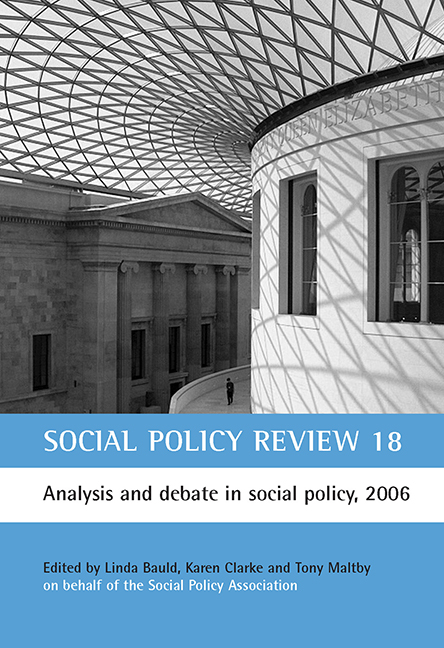two - Creating a patient-led NHS: empowering ‘consumers’or shrinking the state?
Published online by Cambridge University Press: 15 January 2022
Summary
Introduction
Health policy in England in recent years has been described as embodying elements of both modernisation and marketisation. These processes are intended to achieve a transformation from an ‘old’ monolithic service into a ‘new’ National Health Service (NHS), fit for the 21st century, and are to be pursued in part by curbing the monopoly powers of health care providers and ‘harnessing the powers of healthcare users as individuals wishing to access good quality healthcare’ (Allsop and Baggott, 2004, p 29). Following the Labour Party's re-election in May 2005, while it commenced a third term in office with a much-reduced majority, this did nothing to dampen its commitment to increase patient choice and promote diversity in the provision of care. The Labour government's role has also been described as moving away from management and towards regulation, setting standards and targets, but allowing local discretion as to how these are achieved (Klein, 2005). Whether this move to ‘enforced self-regulation’ (Hood et al, 2000; Dent, 2005) is perceived as allowing for greater discretion by those working in the NHS is a moot point, as is the extent to which central government is willing to withdraw from hands-on management. However, on the basis of policies announced in 2005, it seems clear that the government is serious in its intention to reform both the way in which care is commissioned and the way it is provided.
In March 2005, prior to the General Election, Nigel Edwards, Director of Policy for the NHS Confederation, addressed a meeting on the subject of ‘Payment By Results’ (PBR), a tariff-based system for paying hospitals for care provided. The Confederation is the membership body that represents the vast majority of NHS organisations and the audience largely comprised NHS employees (see www.nhsconfed.org). Edwards’ suggestion that New Labour politicians think they have ‘fixed what's wrong with hospitals’ and are now turning their attention to primary care was greeted with laughter by attendees. This perhaps reflects scepticism towards the potential for PBR to ‘fix’ the problems of secondary care within the NHS, but the shift in focus, towards ‘fixing’ problems outside of hospitals, is certainly borne out by policy developments in 2005.
- Type
- Chapter
- Information
- Social Policy Review 18Analysis and Debate in Social Policy, 2006, pp. 33 - 48Publisher: Bristol University PressPrint publication year: 2006
- 1
- Cited by



